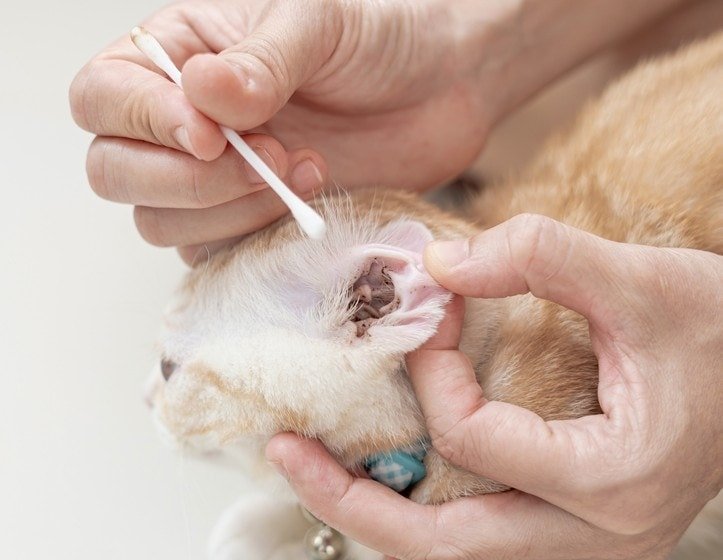
Introduction: What Are Ear Mites in Cats?
If your cat has been scratching its ears excessively, shaking its head, or showing signs of discomfort, ear mites in cats may be the cause. These microscopic parasites are one of the most common ear problems in felines. They are highly contagious, irritating, and, if left untreated, can lead to secondary infections.
The good news? With proper veterinary care and safe treatments, you can get rid of ear mites effectively and keep your cat comfortable.
What Are Ear Mites and How Do Cats Get Them?
Ear mites (scientific name Otodectes cynotis) are tiny parasites that live inside a cat’s ear canal. Though invisible to the naked eye, under a microscope they can be seen moving around.
They are spread through direct contact between animals, meaning cats can catch them from other cats, dogs, or even stray animals. While humans cannot get ear mites, these pests can easily infest multiple pets in the same household.
Symptoms of Ear Mites in Cats
Common signs that your cat may have ear mites include:
Dark brown or black ear discharge (looks like coffee grounds)
Red, inflamed ears
Frequent head shaking
Scratching ears until raw
Crusty skin or sores around the ear
A veterinarian can confirm the diagnosis by taking an ear swab and viewing the mites under a microscope.
Safe Treatments for Ear Mites in Cats
While there are over-the-counter flea and mite treatments, many are unsafe for cats—especially those containing ingredients meant for dogs. Instead, veterinarians recommend safe and effective medications such as:
Ivermectin (when prescribed and dosed properly)
Acarrex (ear drops that target adult mites and hatching eggs)
Bravecto (primarily a flea/tick treatment, sometimes used off-label for mites)
Treatment usually lasts several weeks to ensure that both adult mites and eggs are eliminated. In cases where secondary bacterial or fungal infections occur, your vet may also prescribe additional medications.
Preventing the Spread of Ear Mites
Ear mites are highly contagious. Until your cat has been cleared by a vet, it’s best to:
Keep your infected cat isolated from other pets
Wash bedding, blankets, and pet accessories
Follow up with your veterinarian to ensure mites are fully gone
When to See a Vet
If you suspect your cat has ear mites, do not rely on home remedies or dog-specific treatments. Only a veterinarian can prescribe safe, effective medications and confirm that the infestation is fully resolved.
For more detailed information, you can also read the Cornell Feline Health Center’s guide on ear mites.
Conclusion: Ear Mites Are Treatable
Ear mites in cats may be uncomfortable and irritating, but they are not life-threatening when treated promptly. With proper veterinary care, safe medications, and good hygiene, you can completely get rid of ear mites and prevent reinfestation.
Early treatment means less discomfort for your cat and less risk of spreading the infestation to other pets in your household.